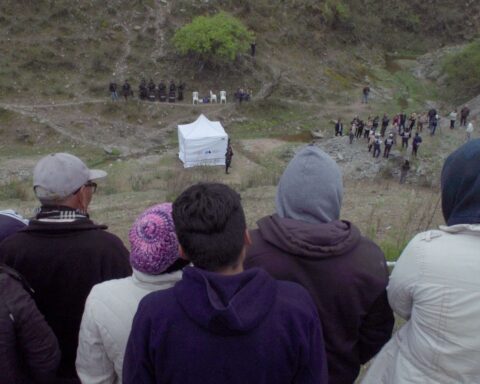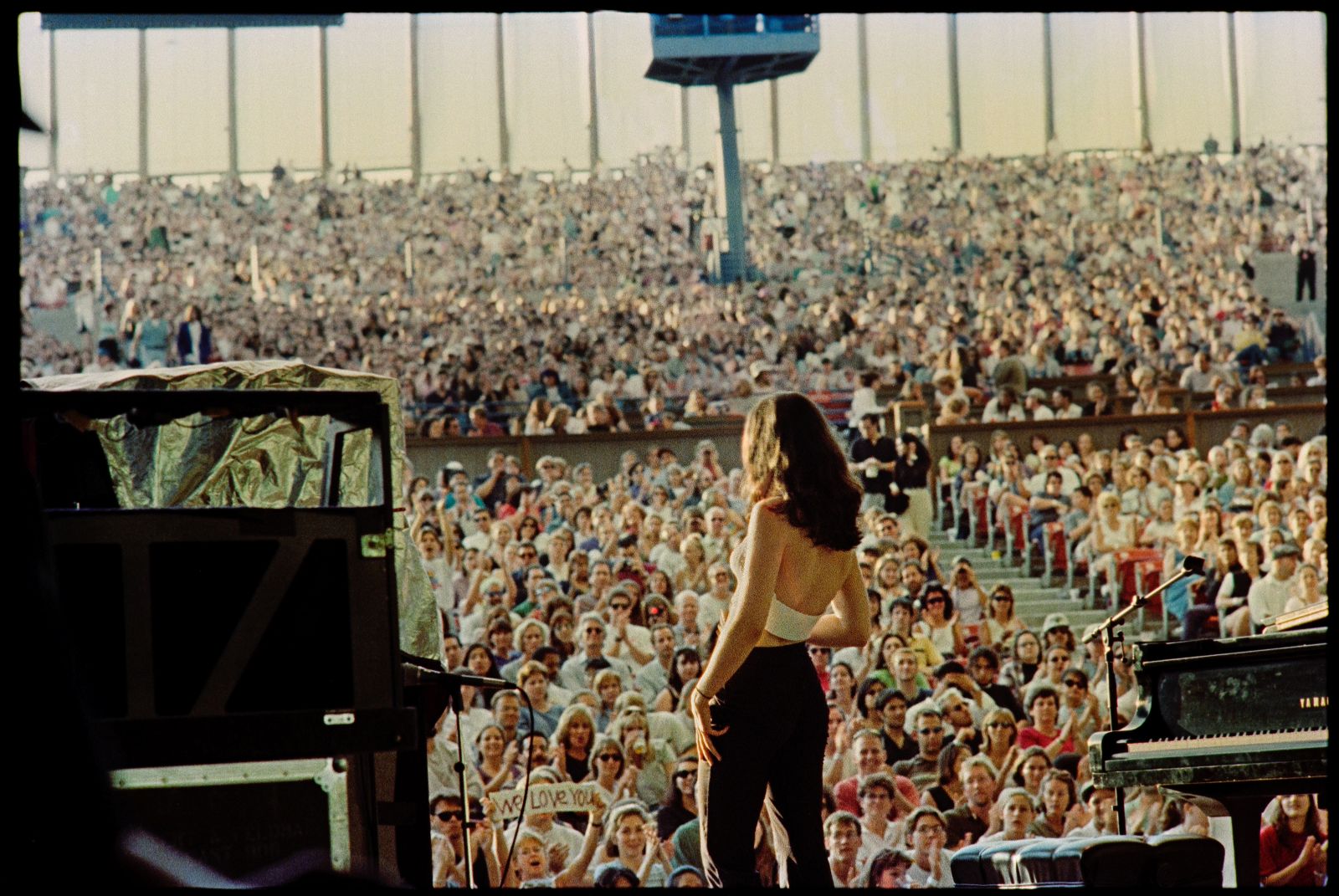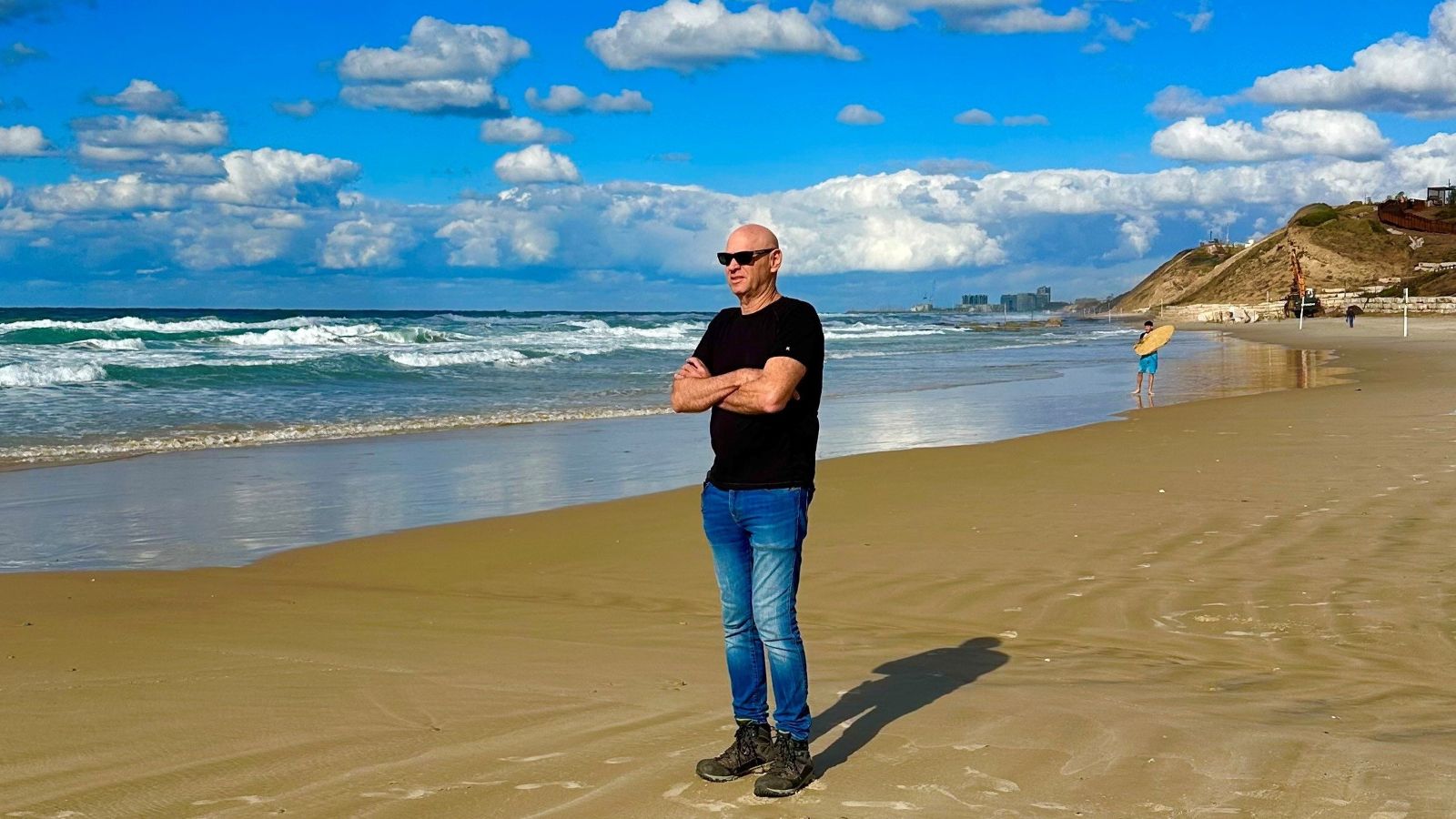Wavelengths 3: Slightest Pretense
(Tunisia/Austria/Japan/Austria/Canada/UAE
Dir. Fredj Mouassa, Freidl vom Gröller, Eri Saito, Björn Kammerer, Basma al-Sharif, Blake Williams
Boasting the 2025 section’s most technically polished and stylistically ambitious shorts, Wavelengths’s third programme “Slightest Pretense” covers a great deal of thematic ground. From gauzy literary adaptations to formalist provocations, these films test the limits of perception for their viewer.
Inspired by a passage from Giovanni Boccaccio’s “ultimate comedy” The Decameron, Fredj Moussa’s Land of Barbar begins with a ship washed ashore along the Tunisian coast, a woman unconscious inside. The encounter between this drifting Italian and the North Africans who happen upon her is radically reimagined through a hazy confluence of translucent fabrics, fragmented faces, and shattered mirrors. This emphasis on fractured closeups continues in Conditio Humana, Friedl vom Groller’s black and white 16mm miniature, which draws a parallel between the greyscale façades of a weathered stone church with the textures and contours of the human face.
Eri Saito’s Slightest Pretense pulls from the writings of Ryūnosuke Akutagawa –– the so-called father of the Japanese short story who overdosed on barbital at 35 –– and from the visual aberrations experienced during a migraine aura. It features a bespectacled stand-in for the author who wanders through picturesque landscapes shot on Super 8 –– a beach, a hotel room, and a cliff’s edge become sites of self-estrangement and psychic splintering. The film is painterly, picturesque, and drenched in a foreboding atmosphere, but it reaches an experiential dead end long before its protagonist’s reality is decisively ruptured in the stirring final shot.
Björn Kammerer’s CONFERENCE, meanwhile, takes such a dead end and stretches it to the limit; the camera rotates around a bonfire, alternating between the blankly pensive gazes of three shaggy-looking men. One man stares into the fire and another stares across it, with eyes fixed on the man opposite him, but as the shots reset and repeat, the target of their gazes begins to shift. The pans change direction with different points of origin and the men’s facial expressions change imperceptibly as a sense of tension and turmoil emerges. This simmering dread goes nowhere, though, and the film starts and ends with little embellishment or ceremony. It’s hilarious, tedious, and compellingly anticlimactic.
Alternatively, there’s a sense of tonal whiplash when we transition to Basma al-Sharif’s Morgenkreis. Beginning with a virtuosic tracking shot through a Berlin apartment complex, the film explores the experiences of Palestinians living abroad. A silhouetted man is interrogated by an offscreen German, whose racist inquiries are brushed off by this father figure more intent on caring for his kin. We see him playing with his son on the playground, and watch as he tries to drop him off at kindergarten, a space rendered by al-Sharif’s active camera as a vortex of unfamiliar faces and alien pedagogies. The director clarified before the screening that the project was funded and conceived before the start of the genocide in Palestine, but her producers allowed her the time and space to reshape the film to reflect her feelings of horror about the state of her homeland.
Another statement was made by Blake Williams, whose thrillingly quotidian 3D road-movie Felt closed out “Slightest Pretense” on a high note. The director recalled in numerically concise terms the exponential reduction of Wavelengths by the festival over the course of the section’s 25-year existence, citing this deliberate shrinkage –– and at least one dubious programming choice in the festival’s TIFF Docs section –– as grounds for the firing of TIFF CEO Cameron Bailey. You could feel the air being sucked out of the room when the name was uttered, but Williams’s pronouncement was met with thunderous applause upon its conclusion. His patient and clear-eyed contribution to “Slightest Pretense demonstrated exactly why festivals need more space for daring artistry.
Get more coverage from this year’s festival here.














